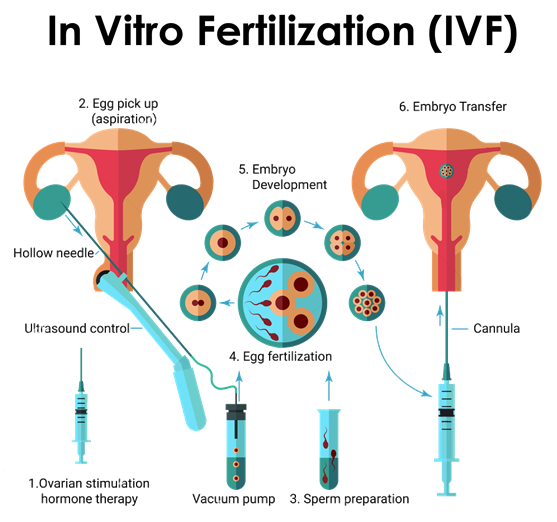Ovarian Stimulation:
Matrics solution provide the woman undergoes hormonal medication to stimulate the ovaries to produce multiple mature eggs.
Egg Retrieval:
The eggs are collected from the woman's ovaries using a needle guided by ultrasound. This is usually done under anesthesia to minimize discomfort.
Sperm Collection:
The man provides a sperm sample, which is then processed to isolate healthy and motile sperm.
Fertilization:
In the laboratory, the eggs and sperm are combined to allow fertilization to occur. This can be done through conventional IVF, where the eggs and sperm are placed together in a culture dish, or through intracytoplasmic sperm injection (ICSI), where a single sperm is injected directly into each egg.
Embryo Culture:
The fertilized eggs, now called embryos, are cultured in a laboratory for a few days to allow them to develop.
Embryo Transfer:
One or more embryos are transferred into the woman's uterus using a thin catheter. This procedure is usually painless and does not require anesthesia.
<
Pregnancy Test:
About two weeks after the embryo transfer, a pregnancy test is done to determine if the IVF procedure was successful.
